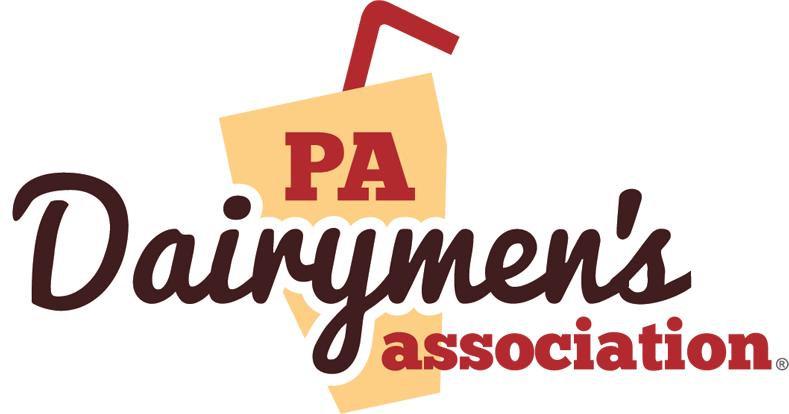
It’s the most wonderful time of the year for dairy farmers – June Dairy Month! National Dairy Month started in 1937 (then called National Milk Month). Now, June is a month to celebrate the contributions the dairy industry has made to local communities and families.
While the phrase dairy farmer tends to bring to mind scenes of bucolic serenity and a man in overalls with a pitchfork surrounded by cows, chickens and lambs, today’s dairy farmers are much different.
Overalls and pitchforks have been traded for jeans and cell phones, and technology, such as computer systems, is used in all aspects of the dairy farm. That’s the case on Way-Har Farms in Pennsylvania, where William and Lolly Lesher own a dairy farm and farm market.
June Dairy Month is an opportunity for the Leshers to share the story of their dairy farm.
“It’s important to us to be open and honest with our customers about how we care for our cows and the land,” said Lolly.
Most dairy farmers, including the Leshers, use technology to better care for their cows. Items such as activity collars (like a Fitbit for cows), GPS locating for crop fields, treating sick cows with modern medicine, smart phones and custom-built housing are all standards on today’s dairy farms. Each of these allows farmers to ensure that their dairy farm is set up to cater to the cows’ needs and comfort.
“Not only am I a dairy farmer, but I am a mother, too,” Lolly said. “And, as a mother, I know how important it is to keep my children happy, healthy and safe. We take the same approach to the care of our animals. Everything we do on our farm is to ensure that our cows are healthy and comfortable.”
Dairy customers often question the use of antibiotics on cows. At Way-Har Farms, cows that are sick can be treated with antibiotics. This is done under the supervision of a veterinarian, a trusted advisor on dairy farms.
“When our cows are sick, we take it very seriously. And, just like a parent, we want them to feel better. We carefully administer medications to get that cow well again. Sometimes, that means antibiotics,” said Lolly.
When a cow is given antibiotics, their milk is not sold. In fact, it’s dumped down the drain until a test tells the farmer that the milk no longer contains measurable amounts of antibiotics.
“For farmers, it’s all about producing high-quality milk for our families and our neighbors,” Lolly said. “We have many protocols in place for milk quality and animal health. These have been developed by third-party companies to ensure that the standards are above the bar.”
The Leshers are part of a Gold Standard program, an on-farm evaluation program that assesses and evaluates areas of animal care and wellness, environmental stewardship, employee training and milk safety and quality. In addition, their farm is subjected to random inspection checks from the state and federal government as well as their milk cooperative.
This year, the Leshers took their cows’ comfort one-step further, building a brand new free-stall barn. The new structure includes comfortable sand-bedded stalls for the cows and large fans and misters for summer weather.
“We let our cows out to pasture in the evening hours only,” said Lolly. “During the day, our pasture has no shade, which is hot and uncomfortable. Our barn is 25 degrees cooler than outside temperatures, and the fans and misters keep the cows comfortable. Again, cow comfort and health are our top priorities.”
The cows also wear activity collars, which track the cow’s steps, their feed intake and their milk production. Every six hours, a mini-report is sent to William’s cell phone and alerts him of any concerns in the data since it may indicate a cow is not feeling well. That cow receives immediate attention to ensure her health is restored.
“Taking care of our cows is one reason why William and I love dairy farming,” Lolly said.
This June, take a minute to celebrate June Dairy Month by enjoying a fresh, cold glass of milk, a big scoop of ice cream or some delicious cheese and crackers. Remember, those dairy foods are made possible by dairy farmers like the Leshers who care for their cows every day.
